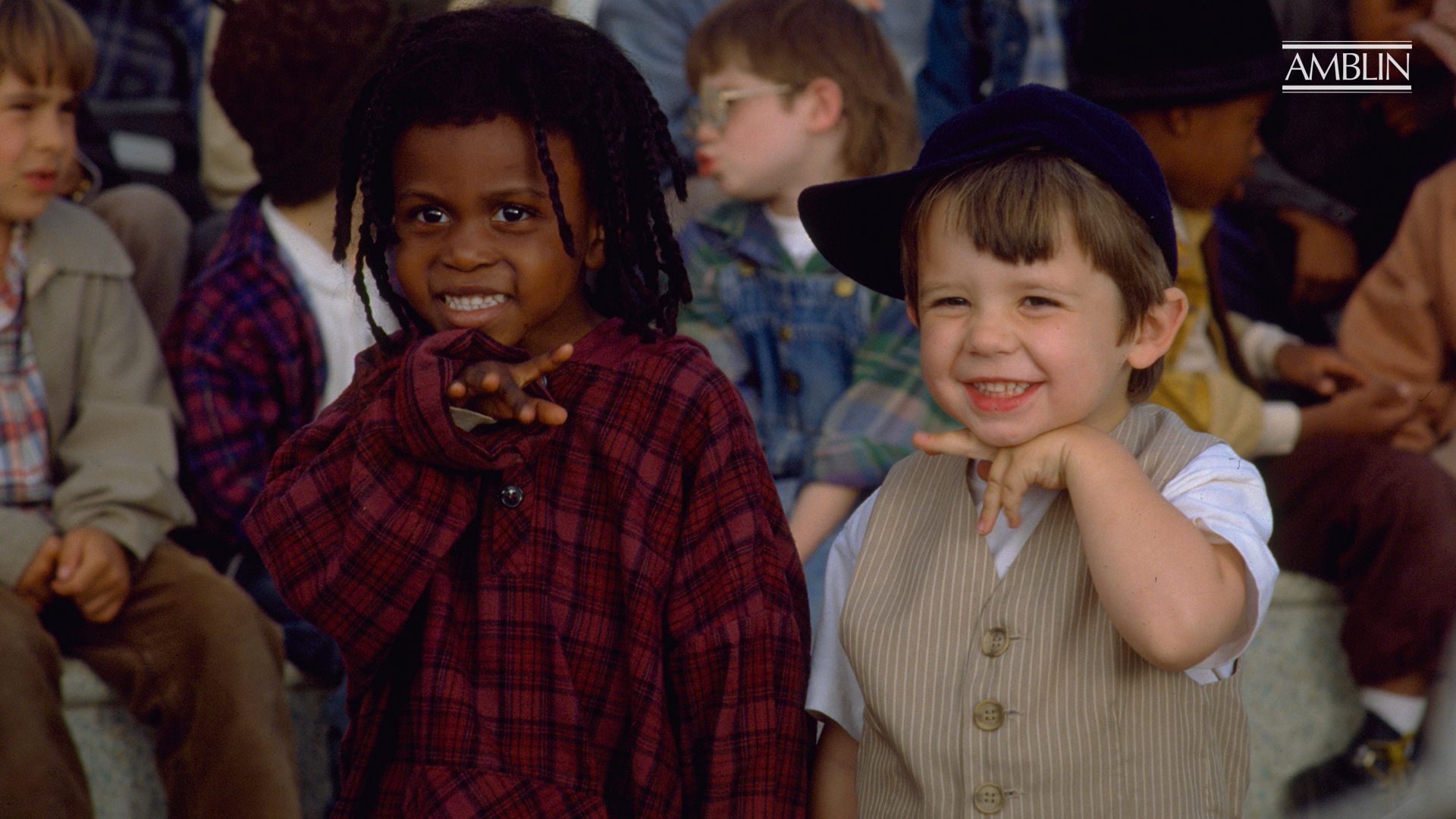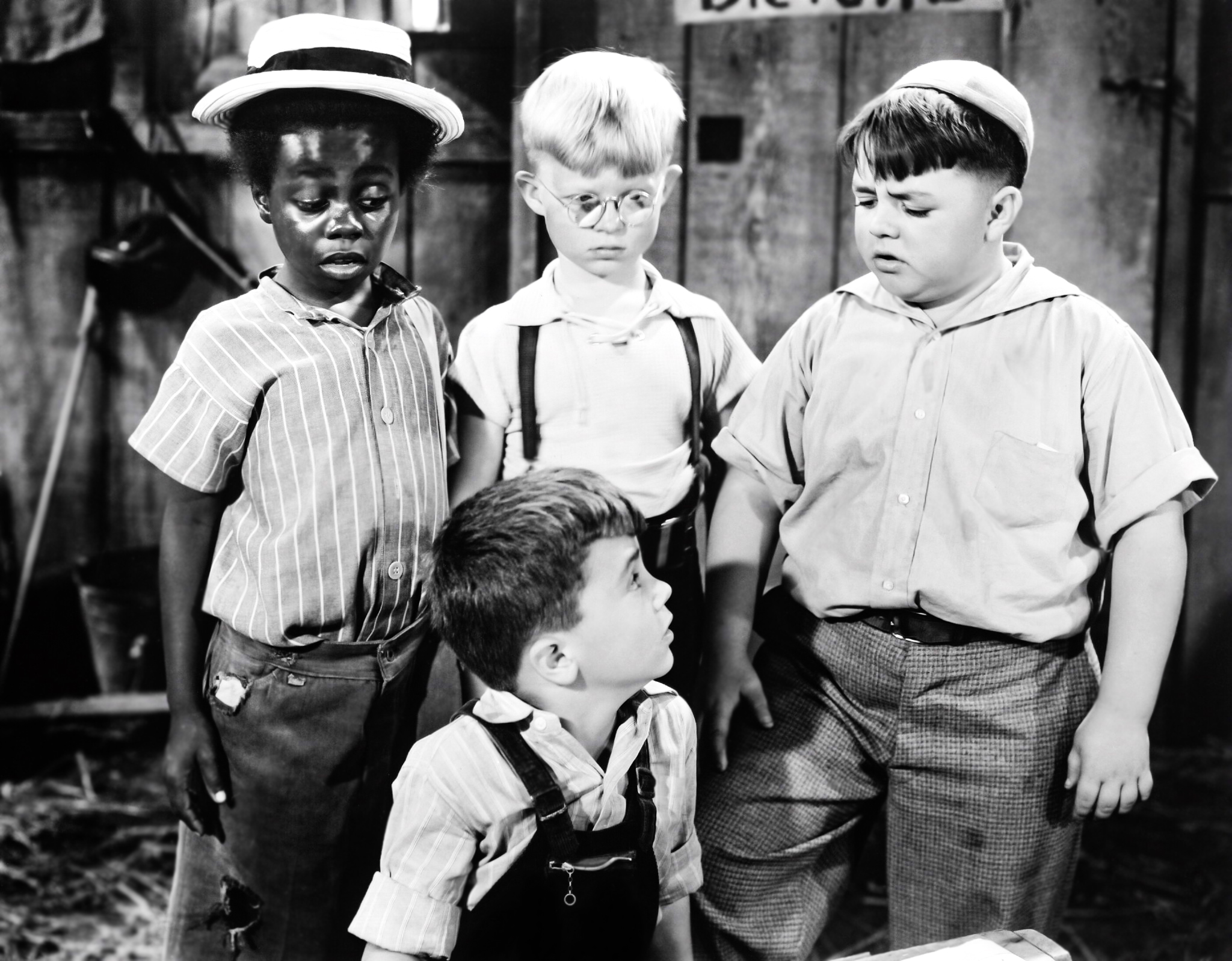Buckwheat On Little Rascals: Uncovering The Truth And Eddie Murphy's Role
Let’s be real, folks. When we talk about "Little Rascals," one name that instantly pops up is Buckwheat. But here’s the kicker—Buckwheat wasn’t just some random character; this was a cultural phenomenon wrapped in a tiny package. Buckwheat was a cornerstone of the series, and over the years, a lot of myths and misconceptions have swirled around him. Today, we’re diving deep to uncover the truth about Buckwheat, his legacy, and the unexpected twist involving Eddie Murphy. So grab your snacks, because this is gonna be a wild ride.
Now, you might be thinking, "Why should I care about Buckwheat?" Well, my friend, Buckwheat wasn’t just a character in a kids’ show. He was a symbol of an era—a time when entertainment was simple, yet impactful. His portrayal in "Little Rascals" sparked debates, inspired discussions, and even led to some pretty wild rumors. Let’s break it down and see why Buckwheat remains relevant today.
But wait, there’s more. Enter Eddie Murphy. Yep, the same guy who made us laugh our heads off in "Beverly Hills Cop" and "Coming to America." Turns out, Eddie Murphy has a connection to Buckwheat that’s as surprising as it is fascinating. So, buckle up because we’re about to uncover the untold story of Buckwheat and Eddie Murphy’s role in it all.
Who Was Buckwheat? The Real Story
First things first, let’s get to know Buckwheat. Buckwheat was a character in "The Little Rascals," a comedy series that aired from 1922 to 1944. Played by Billie Thomas, Buckwheat became one of the most iconic characters in the series. Now, Billie wasn’t just some random kid; he was a talented performer who brought life to the character with his charm and wit.
But here’s the thing: over the years, Buckwheat has been both celebrated and criticized. Some see him as a groundbreaking figure who broke racial barriers in Hollywood, while others argue that his portrayal perpetuated stereotypes. It’s a complex narrative, and we’ll unpack it all in a bit.
Early Life and Career of Billie Thomas
Before we dive into the controversies, let’s talk about Billie Thomas, the man behind Buckwheat. Born on June 30, 1925, in Memphis, Tennessee, Billie grew up in a musical family. His father was a jazz musician, and Billie inherited his love for music and performance at a young age. By the time he was five, Billie was already performing on stage, showcasing his natural talent for comedy and music.
It was this talent that caught the eye of Hal Roach Studios, the production company behind "The Little Rascals." Billie was cast as Buckwheat in 1934, and the rest, as they say, is history. But what many don’t know is that Billie wasn’t just a child actor; he was a multifaceted artist who excelled in music and dance. His performances were a testament to his versatility and creativity.
The Controversy Surrounding Buckwheat
Now, let’s address the elephant in the room. Buckwheat has been the subject of controversy for decades. Critics argue that his portrayal reinforced negative stereotypes about African Americans. The exaggerated mannerisms, the oversized eyes, and the use of dialect all contributed to this perception. But here’s the kicker—Billie Thomas himself never saw it that way. In interviews, he often expressed pride in his role and the opportunities it gave him.
So, how do we reconcile these conflicting viewpoints? The truth is, Buckwheat’s legacy is a reflection of the times in which he was created. In the 1930s, Hollywood was a different world, and the portrayal of minorities was often flawed. But that doesn’t mean we should dismiss Buckwheat’s impact entirely. Instead, we should view it through a historical lens and appreciate the progress that has been made since then.
Public Reaction and Legacy
The public reaction to Buckwheat has been mixed. While some praised him for his charm and humor, others criticized the show for its portrayal of race. Over the years, "The Little Rascals" has faced scrutiny, and in 1994, the series was re-released with edits to remove scenes deemed offensive. But here’s the thing: editing history doesn’t erase it. Instead, it’s important to acknowledge the past and learn from it.
Buckwheat’s legacy lives on in the hearts of fans who remember him fondly. His character was a source of joy and laughter for generations, and that’s something worth celebrating. But it’s also a reminder of the importance of representation and diversity in media.
Eddie Murphy’s Connection to Buckwheat
Now, let’s talk about Eddie Murphy. You might be wondering, "What does Eddie Murphy have to do with Buckwheat?" Well, it turns out that Eddie Murphy has a personal connection to the character. In a 1984 interview, Eddie revealed that Buckwheat was one of his childhood heroes. He even went so far as to say that Buckwheat inspired him to pursue a career in comedy.
Eddie’s admiration for Buckwheat isn’t surprising when you think about it. Both Eddie and Buckwheat broke barriers in their own ways. Eddie became one of the most successful African American comedians in history, paving the way for future generations. And Buckwheat? Well, he was a trailblazer in his own right, proving that talent knows no boundaries.
Eddie Murphy’s Tribute to Buckwheat
In 1984, Eddie Murphy paid tribute to Buckwheat during his stand-up routine. He performed a skit where he impersonated Buckwheat, capturing the character’s essence with humor and respect. It was a moment that resonated with audiences and shed light on the impact Buckwheat had on Eddie’s career.
But Eddie’s tribute wasn’t just about nostalgia. It was a reminder of the importance of acknowledging the pioneers who came before us. By honoring Buckwheat, Eddie was paying respect to the legacy of African American performers who paved the way for future generations.
Impact on Modern Media
So, how has Buckwheat’s legacy influenced modern media? The answer is simple: representation matters. Today, we see a greater emphasis on diversity and inclusion in entertainment. Shows and movies are more conscious of how they portray minorities, and that’s a step in the right direction.
But it’s not just about ticking boxes. It’s about telling authentic stories that resonate with audiences. Buckwheat’s story is a reminder of the power of representation and the impact it can have on future generations. By learning from the past, we can create a more inclusive and equitable future for all.
Lessons from Buckwheat’s Story
Here are a few key takeaways from Buckwheat’s story:
- Representation matters in media.
- History is complex, and it’s important to acknowledge both the good and the bad.
- Progress is possible, but it requires effort and awareness.
These lessons are more relevant than ever in today’s world. As we strive for a more inclusive society, we must remember the pioneers who came before us and the impact they had on shaping the world we live in today.
The Importance of Historical Context
When discussing Buckwheat, it’s crucial to consider the historical context. In the 1930s, Hollywood was a different place. Opportunities for African American performers were limited, and the portrayal of minorities was often flawed. But that doesn’t mean we should dismiss the achievements of those who broke barriers during that time.
Buckwheat’s story is a testament to the resilience and creativity of African American performers in the face of adversity. By acknowledging the challenges they faced, we can appreciate their contributions to the entertainment industry and the progress that has been made since then.
How Historical Context Shapes Our Understanding
Here’s the deal: understanding historical context helps us make sense of the world. It allows us to see things from a different perspective and appreciate the progress that has been made. Buckwheat’s story is a prime example of this. By viewing it through a historical lens, we can better understand the challenges faced by African American performers in the early 20th century.
But it’s not just about the past. It’s about using that knowledge to inform the present and shape the future. By learning from history, we can create a more inclusive and equitable world for all.
Final Thoughts: Celebrating Buckwheat’s Legacy
As we wrap up this journey through Buckwheat’s story, it’s important to reflect on what we’ve learned. Buckwheat wasn’t just a character in a kids’ show; he was a symbol of an era and a reminder of the power of representation. His legacy lives on in the hearts of fans who remember him fondly, and in the work of artists like Eddie Murphy who were inspired by his example.
So, what can we take away from all of this? First, representation matters. Second, history is complex, and it’s important to acknowledge both the good and the bad. And finally, progress is possible, but it requires effort and awareness.
Now, it’s your turn. What do you think about Buckwheat’s legacy? Do you have a favorite memory of the character? Let us know in the comments below, and don’t forget to share this article with your friends. Together, we can keep the conversation going and honor the pioneers who paved the way for future generations.
Table of Contents
Who Was Buckwheat? The Real Story
Early Life and Career of Billie Thomas
The Controversy Surrounding Buckwheat
Eddie Murphy’s Connection to Buckwheat
Eddie Murphy’s Tribute to Buckwheat
Lessons from Buckwheat’s Story
The Importance of Historical Context
Final Thoughts: Celebrating Buckwheat’s Legacy
That’s all for now, folks. Thanks for joining me on this journey through Buckwheat’s story. Until next time, keep it real and keep it raw.

Little Rascals Buckwheat 1994

Little Rascals Buckwheat 1994

"Little Rascals" Buckwheat Billie Thomas boy or girl? • Eve Out of